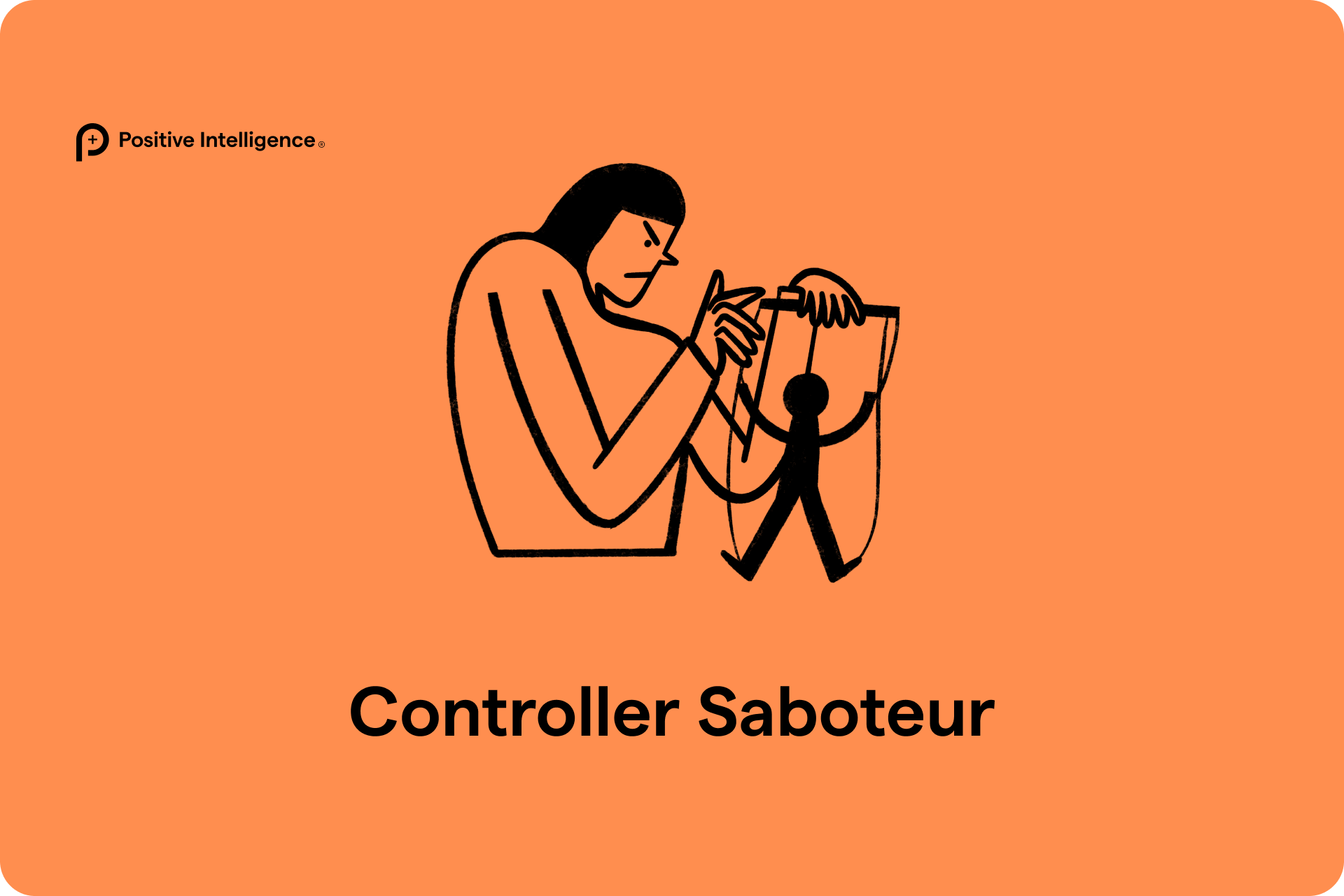
Individual
A self-facilitated program to boost your mental fitness for personal and professional growth
This website will offer limited functionality in this browser. We only support the recent versions of major browsers like Chrome, Firefox, Safari, and Edge.

Select the experience that fits your needs

A self-facilitated program to boost your mental fitness for personal and professional growth

A self-facilitated mental fitness program with exclusive pricing for 2 to 25 individuals

Explore coach-led mental fitness programs with workshops tailored to your organization
Growth Mindset

Saboteurs are stealthy adversaries that dwell within your mind, sabotaging your aspirations, triggering self-doubt, and hindering your progress. Among these internal foes, the Controller Saboteur stands out for its relentless pursuit of control, perfectionism, and fear of failure. Here’s what you need to know about the Controller Saboteur and some effective strategies for minimizing its negative influence.
Saboteurs are deeply ingrained patterns of thinking and behavior that limit your potential and hinder your ability to perform at your best. They are internal critics that operate based on fear, self-doubt, and negative self-talk. Saboteur patterns can manifest in various forms, such as the Avoider, the Hyper-Achiever, the Victim, and more. Each Saboteur has a unique way of sabotaging your wellbeing and success.
The Controller has an anxiety-based need to take charge and control situations and people’s actions. This can lead to even more anxiety, as many things in work and life are ultimately uncontrollable.
The Controller is impatient with other’s feelings and different styles of doing things and can get angry and intimidating when others don’t follow them. While the Controller gets temporary results, they often come at the cost of others feeling controlled, resentful, and unable to tap into their own greater reserves.
Here’s what to look out for as the Controller tries to impose its lies and limiting beliefs on you.
Underneath the Controller’s bravado, there is often a hidden fear of being controlled by others or life. The Controller is sometimes associated with early life experiences that force a child to grow up fast, be on their own, and take charge of their chaotic or dangerous surroundings to survive physically and emotionally. It is also associated with being hurt, rejected, or betrayed and deciding never to be that vulnerable again.
The Controller has strong energy and a need to take charge. The Controller tries to connect with others through competition, challenge, physicality, or conflict rather than softer emotions.
The Controller is stimulated by and connects through conflict, coming alive when doing the impossible and beating the odds. Willful, confrontational, and straight-talking, the Controller pushes people beyond their comfort zone. The Controller intimidates others and is often surprised when others get hurt, as others can interpret the Controller’s in-your-face communication style as anger or criticism.
1. The first thing to remember is that if you’re in negative emotion for more than a second, you’re in Saboteur mode. You must label your thoughts and emotions at that moment as Saboteur and let them go. To be able to do that, you need to have studied your Saboteurs (including the Controller) and discredited their lies and limiting beliefs. Take the Saboteur Assessment to get started.
2. The next step is to perform a PQ Rep, which is a 10-second hyper-focus on one of your senses. PQ Reps are powerful ways to command your mind to quiet the region where your Saboteurs live and activate the region where your Sage (positive self) lives. Every time you intercept the Controller or your other Saboteurs, do PQ Reps to pause and choose a more positive response. Visit the PQ Gym to try some guided PQ Reps.
In addition to intercepting the Controller and performing PQ Reps, try these techniques to minimize the Controller’s negative influence on your life:
1. Set Realistic Expectations: Challenge perfectionism by setting realistic and achievable goals. Embrace the concept of “good enough” rather than striving for unattainable perfection.
2. Delegate and Trust: Practice delegating tasks and responsibilities to others, trusting their abilities, and allowing them to take ownership. Seek empowerment through collaboration and shared responsibility.
3. Embrace Mistakes: Practice viewing mistakes as opportunities for growth and learning. Develop a growth mindset that values progress over perfection.
4. Seek Feedback: Welcome constructive feedback and diverse perspectives from peers, mentors, or coaches. Use feedback as a personal and professional development tool rather than viewing it as criticism.
5. Challenge Negative Talk: Replace criticism with compassion and positive affirmations for yourself and others. Challenge your negative beliefs about failure, control, and perfectionism.
While the Controller Saboteur may offer a sense of temporary control, its tendencies ultimately hinder your personal and professional growth. By understanding the Controller’s traits, you can recognize its negative influence on your life and implement mental fitness techniques to stop it. When you do, you’ll reclaim control over your thoughts and behaviors, stepping into a life of greater personal and professional performance and happiness.
Explore how the PQ Program for mental fitness can help you and your team intercept your Saboteurs to improve performance, team dynamics, and wellbeing.

